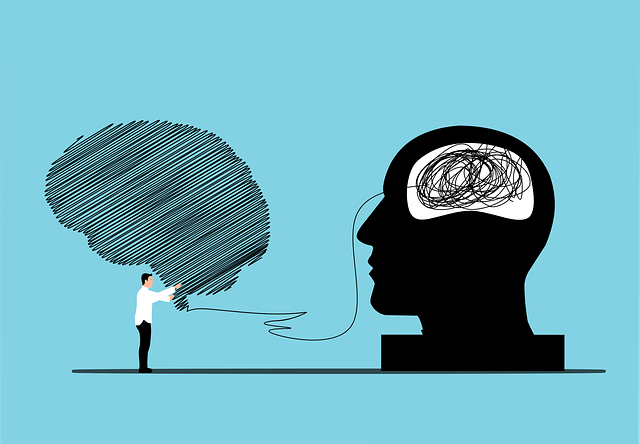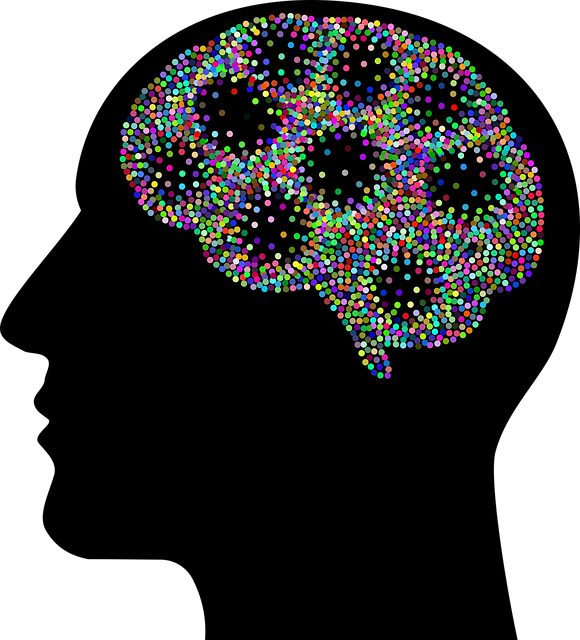Chronic anxiety, a debilitating condition affecting daily life, requires comprehensive management. Treatment involves identifying root causes, including genetic predispositions, brain chemistry imbalances, or traumatic events. Effective strategies include psychotherapy (e.g., Cognitive Behavioral Therapy), medication, and lifestyle changes. CBT targets negative thought patterns, mindfulness therapies promote present-moment awareness, and exposure therapy confronts fears gradually. Integrating these approaches creates a personalized anxiety treatment plan. Supportive environments, active listening, and collaboration between therapists and clients enhance engagement with evidence-based techniques. Long-term strategies involve sustainable coping mechanisms, lifestyle adjustments, regular exercise, balanced diets, and strong support networks for ongoing mental health management.
Chronic anxiety can significantly impact daily life, but help is available through various effective therapy options. This comprehensive guide explores in-depth strategies for managing this pervasive condition, from understanding its symptoms and causes to discovering tailored treatment approaches. We delve into evidence-based practices like Cognitive Behavioral Therapy (CBT) and Mindfulness-Based Therapies, offering practical steps for relief. Additionally, we cover building a supportive environment and long-term management techniques to ensure lasting results in anxiety treatment.
Understanding Chronic Anxiety: Symptoms and Causes

Chronic anxiety is a persistent and severe form of anxiety that can significantly impact an individual’s daily life and overall well-being. Unlike transient feelings of worry, chronic anxiety disorders are long-lasting and may worsen over time if left untreated. Symptoms manifest in various ways, including excessive fear, restlessness, fatigue, irritability, muscle tension, and difficulty concentrating. These symptoms can be debilitating, affecting sleep patterns, appetite, and overall mental health.
Several factors contribute to the development of chronic anxiety, including genetic predisposition, brain chemistry imbalances, traumatic life events, and environmental stressors. In some cases, it may arise from an underlying medical condition or be a side effect of certain medications. Identifying the root causes is crucial for effective anxiety treatment, which often involves a combination of psychotherapy, medication, or lifestyle changes to manage symptoms and improve quality of life.
Common Treatment Approaches for Anxiety Disorders

Anxiety disorders are commonly treated using a combination of evidence-based therapies, tailored to address individual needs. Cognitive Behavioral Therapy (CBT) is a widely recognized and effective approach, focusing on identifying and changing negative thought patterns and behaviors that contribute to anxiety. This therapy helps individuals gain insights into their fears and worries, learn coping strategies, and gradually face challenging situations.
Another popular method is Exposure Therapy, which involves gradual exposure to feared objects or scenarios in a safe environment. By facing their anxieties step by step, individuals can reduce the intensity of their responses over time. Additionally, Mindfulness-Based Therapies gain prominence for their ability to teach present-moment awareness and non-judgmental acceptance of thoughts and feelings, fostering better emotional regulation. These treatment options, often combined with medication, offer comprehensive anxiety treatment strategies.
The Role of Therapy in Managing Chronic Anxiety

Anxiety therapy plays a pivotal role in managing chronic anxiety disorders, offering individuals valuable tools to navigate and overcome their symptoms. It provides a safe space for individuals to explore and understand the underlying causes and triggers of their anxiety. Through various therapeutic approaches, such as cognitive-behavioural therapy (CBT), individuals can learn to challenge negative thought patterns, manage stress effectively, and develop healthier coping mechanisms.
Therapy gives people the chance to gain insights into their anxiety, break free from unhelpful behaviours, and improve their overall quality of life. It empowers them with strategies to face anxious situations head-on and reduce the intensity of panic attacks or obsessive thoughts. In essence, therapy for chronic anxiety is a transformative process that enables individuals to regain control over their lives and lead more fulfilling, less anxious existences.
Cognitive Behavioral Therapy (CBT): A Step-by-Step Guide

Cognitive Behavioral Therapy (CBT) is a highly effective anxiety treatment approach that focuses on identifying and changing negative thought patterns and behaviors. The process involves several steps to help individuals manage their anxiety effectively.
Firstly, CBT aids in becoming aware of automatic negative thoughts by identifying triggers and recording anxious feelings. This step enables the patient to recognize unhelpful cognitive distortions. Subsequently, the therapist and client work together to challenge these thoughts, replacing them with more realistic and positive alternatives. Through this process, individuals learn to reframe their perspective on anxiety-provoking situations, reducing the intensity of their emotional response. Additionally, CBT incorporates behavioral techniques, such as gradual exposure to feared scenarios, helping patients face their anxieties in a safe environment.
Mindfulness-Based Therapies for Anxiety Relief

Mindfulness-based therapies, such as Mindfulness-Based Stress Reduction (MBSR) and Cognitive Behavioural Therapy (CBT), have proven effective in managing chronic anxiety. These therapeutic approaches focus on training individuals to be fully present in the moment, observing their thoughts and feelings without judgment.
By cultivating mindfulness, people can learn to recognize and disengage from anxious thought patterns, thereby reducing the intensity of anxious responses. MBSR and CBT also teach relaxation techniques, breathing exercises, and mindfulness meditation practices that help calm the mind and body, providing long-lasting anxiety relief for those struggling with chronic conditions.
Exploring Other Therapeutic Modalities for Chronic Anxiety

For those seeking comprehensive anxiety treatment, exploring various therapeutic modalities can be empowering. Beyond traditional talk therapy, several innovative approaches have proven effective in managing chronic anxiety. Mindfulness-based interventions, such as meditation and cognitive behavioral therapy (CBT), teach individuals to recognize and reframe anxious thoughts, promoting a sense of calm. These practices empower people with tools to navigate stressful situations and reduce the intensity of anxiety responses.
Additionally, exposure therapy offers a structured approach to confronting fears in a safe environment. By gradually facing anxiety-provoking scenarios, individuals can learn to manage their reactions and reduce avoidance behaviors. Integrating these therapeutic modalities often provides a holistic anxiety treatment plan, catering to diverse needs and preferences.
Building a Supportive Environment for Effective Anxiety Treatment

Creating a supportive environment is paramount for effective anxiety treatment. This involves fostering a safe, non-judgmental space where individuals feel comfortable expressing their fears and vulnerability. Therapists play a crucial role in cultivating such an environment through active listening, empathy, and consistent support throughout the anxiety treatment process. By ensuring clients feel understood and accepted, therapists encourage them to explore underlying causes of anxiety without fear of criticism or rejection.
Additionally, a supportive setting should promote consistent engagement with evidence-based techniques taught during therapy sessions. This includes creating opportunities for practice outside the clinical setting, such as through relaxation exercises, mindfulness activities, and gradual exposure to feared situations. A collaborative approach where both therapist and client work together towards shared goals is essential for building resilience against chronic anxiety, ultimately enhancing the effectiveness of anxiety treatment.
Long-Term Management and Preventing Relapse

Anxiety treatment isn’t just about short-term relief; effective management aims for long-term strategies to prevent relapse. This involves learning coping mechanisms and lifestyle adjustments that can be sustained over time. Techniques such as cognitive behavioural therapy (CBT) teach individuals to identify and challenge negative thought patterns, effectively managing anxiety-provoking situations without relying on external help. Mindfulness practices, regular exercise, and a balanced diet are also integral parts of this strategy, promoting overall well-being and reducing stress levels.
Additionally, building a strong support network is crucial for long-term management. This includes seeking ongoing therapy sessions, joining support groups, or confiding in trusted friends and family members. Regular check-ins with healthcare professionals can help monitor progress, adjust strategies as needed, and ensure individuals stay on track with their anxiety treatment plans, effectively preventing relapse and fostering a sense of control over their mental health.
